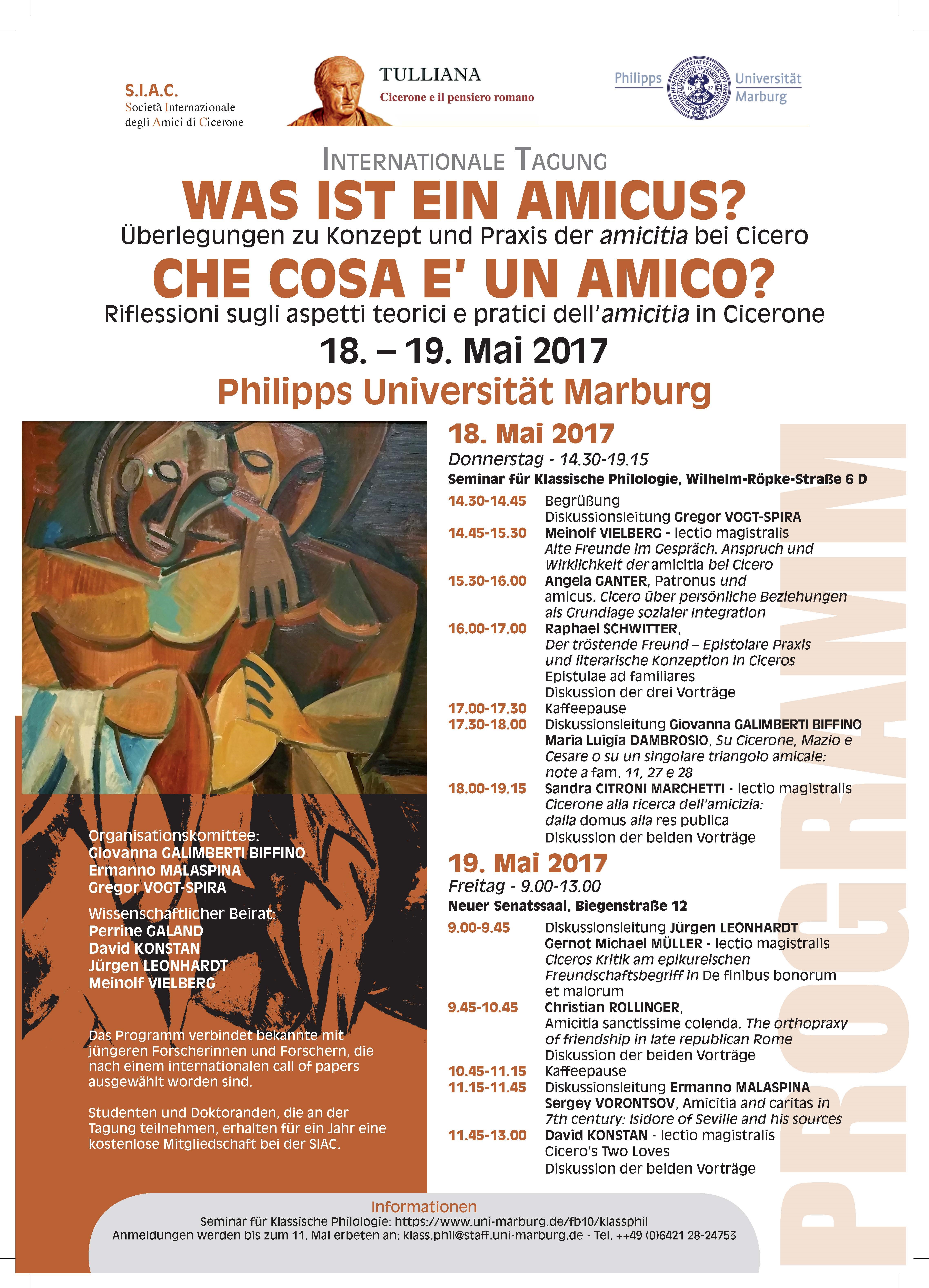Der tröstende Freund - Epistolares Rollenbild und kommunikative Verhaltensweise in Ciceros Epistulae ad familiares - The Consoling Friend: Epistolary Role Model and Communicative Behaviour in Cicero's Epistulae ad Familiares
DOI :
https://doi.org/10.13135/2532-5353/2506Résumé
Schlüsselwörter: Cicero; consolatio; letters; friendship; practice of communication.
Zusammenfassung: Tröstender Zuspruch war innerhalb der prekären, von Empfindsamkeiten geprägten aristokratischen Freundschaftskultur der späten römischen Republik eine anspruchsvolle und komplexe Angelegenheit. Besonders in Briefen – der Kommunikationsform, in der sich die römische Oberschicht üblicherweise verständigte, wenn ein persönlicher Kontakt nicht möglich war – war die tröstende Zuwendung an einen Freund mit gewissen Risiken verbunden. Um den Trauernden nicht zu brüskieren, genügte es nicht, sich in den psychischen und emotionalen Zustand des Adressaten zum Zeitpunkt des Brieferhalts zu versetzen, vielmehr musste die Tonlage und Argumentationsstrategie des Briefs am sozialen Status des Adressaten angepasst und das spezifische Nähe-Distanzverhältnis zwischen den beteiligten Partnern berücksichtigt
werden. Anhand der in Ciceros Epistulae ad familiares enthaltenen Trostschreiben de morte werden im vorliegenden Beitrag – in Abgrenzung zur traditionell dominanten philosophischen adhortatio – Höflichkeit, Respekt und Taktgefühl als die zentralen soziokommunikativen Merkmale der litterae consolatoriae der römischen Nobilität der Späten Republik herausgestellt.
Abstract: Offering consolatory advice and comfort was a highly delicate task that potentially could threaten the precarious amicitia relationship between Roman aristocrats of the Late Republic. Especially in letters – the means of communication to which Cicero and his peers usually turned if personal conversation was impossible – consoling a friend was quite challenging. In order to avoid offending the often thin-skinned bereaved, the writer had to consider the mental and emotional condition of the addressee, and most importantly to pay respect to his social status. As the consolatory letters de morte preserved in Cicero’s Epistulae ad familiares show, epistolary consolation in late republican Rome was characterized by a specific communicative strategy based upon politeness and the conveyance of personal affection rather than on philosophical exhortation and rebuke, which
traditionally dominate literary consolation in Greek and Roman Antiquity.
Téléchargements
Téléchargements
Publiée
Comment citer
Numéro
Rubrique
Licence
Les auteurs qui publient dans cette revue acceptent les termes suivants :
- Les auteurs conservent leur propriété intellectuelle sur le texte soumis et accordent à la revue le droit de première publication, l'ouvrage étant alors disponible simultanément sous Licence d’attribution Creative Commons – qui permet le partage de l’œuvre tout en en reconnaissant la paternité intellectuelle – et la publication initiale dans cette revue.
- Les auteurs peuvent conclure des ententes contractuelles supplémentaires pour la diffusion non exclusive de la version imprimée de l'ouvrage par la revue (par exemple, le dépôt institutionnel ou la publication dans une monographie), à condition d’indiquer une mention reconnaissant la publication initiale du texte dans cette revue.


 Ciceroniana On Line est reconnue par l'ANVUR (Agence nationale d'évaluation du système universitaire et de la recherche) comme revue de classe A pour les sciences de l'Antiquité, la philologie, la littérature et l'histoire de l'art (
Ciceroniana On Line est reconnue par l'ANVUR (Agence nationale d'évaluation du système universitaire et de la recherche) comme revue de classe A pour les sciences de l'Antiquité, la philologie, la littérature et l'histoire de l'art ( Le journal a été approuvé pour inclusion dans DOAJ. La liste des publications DOAJ est disponible à l'adresse suivante:
Le journal a été approuvé pour inclusion dans DOAJ. La liste des publications DOAJ est disponible à l'adresse suivante: 
 La revue est indexée dans
La revue est indexée dans  La revue est incluse dans ERIH PLUS. La liste des revues d'ERIH PLUS est disponible à l'adresse suivante:
La revue est incluse dans ERIH PLUS. La liste des revues d'ERIH PLUS est disponible à l'adresse suivante: 
